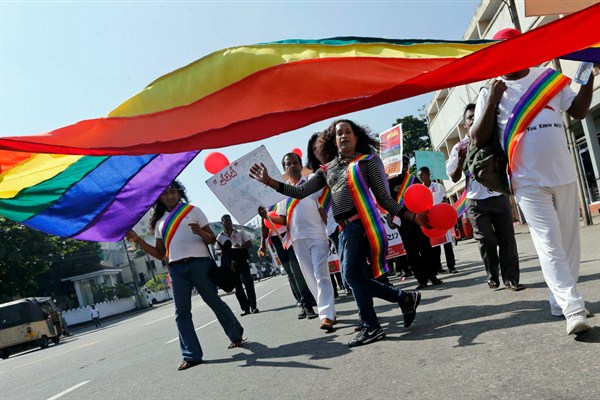Editor’s Note: This article is part of an ongoing WPR series on LGBT rights and discrimination in various countries around the world.
Sri Lanka has been pursuing constitutional reforms since President Maithripala Sirisena came to power in 2015. LGBT activists hope the process will yield legal protections that could curb abuses ranging from police harassment to job discrimination. While the island nation has been praised for a progressive policy on gender recognition for transgender people, same-sex sexual acts between consenting adults are still criminalized. In an email interview, Yuvraj Joshi, a law fellow with Lambda Legal who documented abuses against LGBTI people in Sri Lanka for Human Rights Watch in 2015 and 2016, describes recent gains made by activists and how the government has positioned itself on LGBT issues.
WPR: What is the status of LGBTI rights in Sri Lanka, and how has the climate for LGBTI Sri Lankans evolved in recent years?

